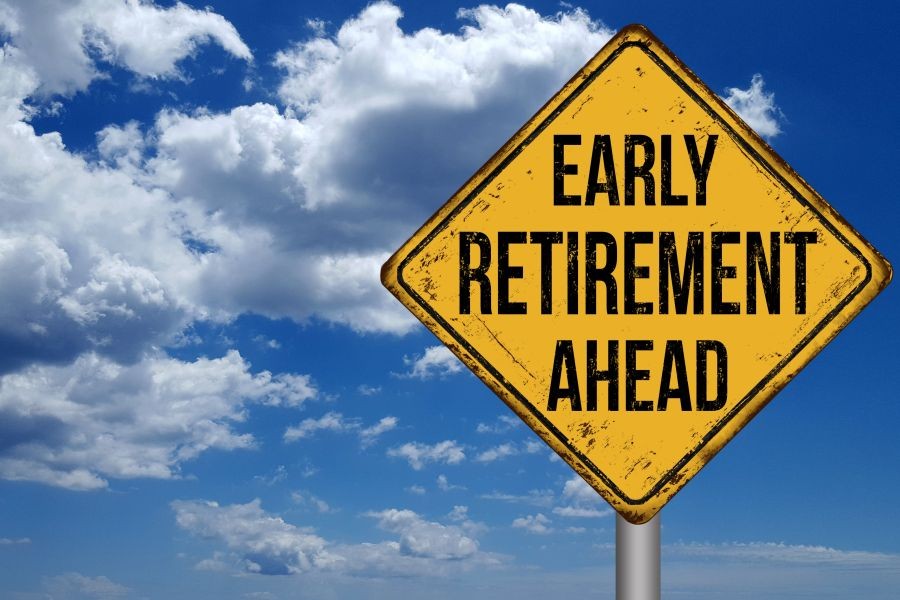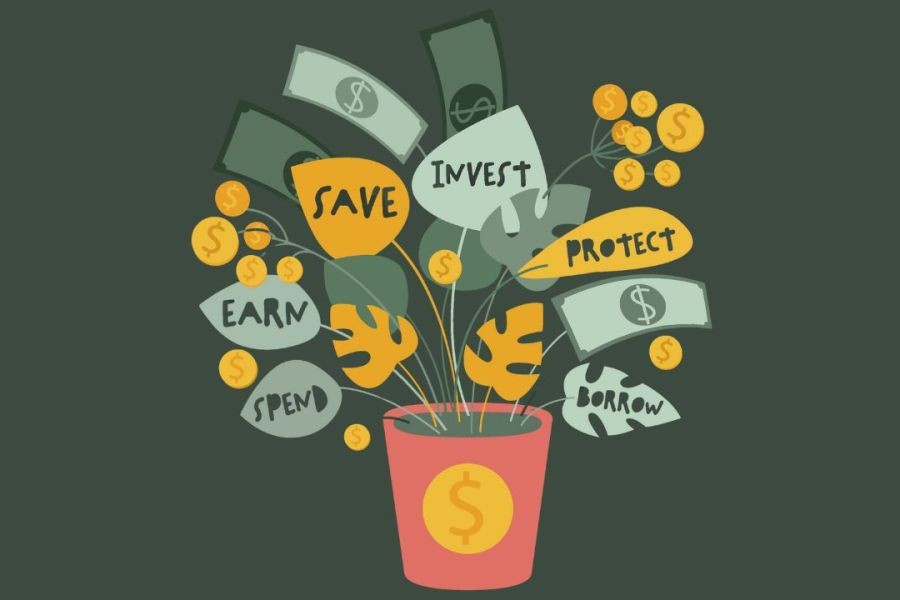📝 Introduction: The Working Poor in a Rich City
“You work 40 hours a week — and still can’t afford a room of your own.”
It’s a bitter contradiction at the heart of life in Auckland. The city boasts billion-dollar developments, record tourism, and a workforce that runs 24/7. Yet behind the baristas, bus drivers, construction crews, and care workers lies a harsh truth: having a job no longer means you can live here.
In Aotearoa’s largest city, an increasing number of full-time workers are sharing overcrowded flats, lining up at food banks, and even living in emergency motels — despite earning what used to be considered a decent wage. The gap between productivity and basic survival has become a canyon.
We are witnessing the rise of the working poor — a class of people who are not unemployed, not lazy, and not failing. They are turning up, clocking in, doing everything "right" — and still being left behind.
This long-form investigation examines:
Why Auckland’s economy no longer rewards full-time work with basic dignity
How wages have failed to keep up with housing and food costs
What this crisis is doing to people’s mental health, family life, and futures
What real solutions would look like — beyond empty promises and band-aids
The tension is sharp: we demand productivity, but offer precarity. And unless we address this contradiction, the heart of the city — its workers — will continue to break under the weight of survival.
🔎 Part 1: The Myth of the Working Wage
In generations past, getting a full-time job was the gold standard of economic stability. A 40-hour workweek meant a roof over your head, food on the table, maybe even a path to homeownership. But in today’s Auckland, that promise has all but vanished.
Working Hard ≠ Living Well
According to Stats NZ and Auckland Council data, median rents have soared over 35% in the last five years — outpacing wage growth nearly two to one. While the minimum wage rose to $23.15 per hour in 2024, the cost of basic essentials has exploded:
Median rent (Auckland, 2025): $620/week
Average weekly grocery bill for two adults: $250–300
Fuel, power, and transport combined: $120–150/week
Even a full-time worker earning $48,000–$55,000 annually often finds more than half their income consumed by rent alone, with very little left for food, savings, or emergencies.
The Disappearing Middle
It’s not just those in entry-level roles who are affected. Teachers, nurses, early childhood educators, supermarket supervisors, hospitality staff — all report being forced into flatshares well into their 30s or 40s, or turning to secondary jobs just to survive.
This erosion of the working wage has become so normalized that phrases like “at least you have a job” now sound more like sarcasm than reassurance.
A Quiet Erosion of Trust
There’s a deeper issue at play. When society breaks its promise — that work leads to stability — people lose faith. In their employers. In the system. In themselves.
This is the first crack in the foundation of a functioning society: when full-time work no longer shields people from poverty, the very meaning of employment begins to collapse.
🏘️ Part 2: A City of Renters, Not Owners
Auckland was once seen as the land of suburban dreams — a standalone home, a backyard, a BBQ, and maybe even a boat. But for an overwhelming majority of today’s working population, that vision has vanished. The city has become a place of transience and tenancy, where full-time workers are locked out of ownership and often priced out of even basic rental stability.
Home Ownership Slipping Away
According to CoreLogic NZ, only 40% of Aucklanders now own the home they live in, with the rest — disproportionately younger people, Māori, and Pasifika — locked into the rental market. The barriers to buying are immense:
Median house price (Auckland, 2025): $1.15 million
Required deposit (20%): $230,000
Average annual salary (full-time worker): $55,000–$70,000
Even saving a deposit has become nearly impossible. For many workers, skyrocketing rents and living costs eat up every pay cycle, leaving no room for long-term financial planning.
Renters in Crisis
But it’s not just ownership that’s out of reach. Renting in Auckland has become a struggle in itself. Properties are scarce, inspections are fiercely competitive, and landlords wield enormous power. Tenants report:
Being forced to move frequently due to rent hikes
Living in cold, damp flats shared with five or more people
Withholding complaints to avoid being “blacklisted” by property managers
Even people with full-time jobs, good references, and stable income are now competing with dozens of applicants — and sometimes losing out to those offering to pay months in advance.
The Rise of Adult Flatsharing
Flatting used to be a rite of passage for students and people in their early twenties. Now, it’s a long-term survival strategy for middle-aged adults and even families. Workers who never imagined sharing bathrooms with strangers past graduation are now flatting well into their 30s, 40s, and 50s — not by choice, but by economic necessity.
“I’m a chef with 20 years’ experience and I share a room with another grown man. It’s that or the car,” says Jason*, 39, from West Auckland.
(*Name changed for privacy)
From “Choice” to “Churn”
We are no longer talking about lifestyle preferences. We are talking about a system where people with jobs — even multiple jobs — are trapped in housing instability, forever one rent increase away from crisis. The Auckland housing market doesn’t serve workers. It bleeds them.
⚖️ Part 3: The Rise of In-Work Poverty
Once, “poverty” in Aotearoa was assumed to be the domain of the unemployed. But that assumption no longer holds. Today, poverty is wearing a uniform, clocking in at 8 a.m., and still skipping meals to make rent. In-work poverty is not just real — it’s growing.
What Is In-Work Poverty?
In-work poverty refers to individuals or households who are employed but still do not earn enough to meet their basic needs, including food, shelter, transport, healthcare, and participation in society.
It’s not just a paycheck issue — it's a cost-of-living crisis intersecting with stagnating wages, inadequate housing, and insecure work contracts. Many full-time workers in Auckland:
Spend over 50% of their income on rent
Can’t afford three nutritious meals a day
Avoid visiting doctors due to co-payment costs
Delay replacing worn-out clothes, shoes, or even broken appliances
In short, they work — but they do not thrive. They survive, and often just barely.
Who Is Affected?
The face of in-work poverty is varied — but some groups are disproportionately affected:
Māori and Pasifika workers, particularly in care, construction, and service industries
Young adults in retail, hospitality, gig work, and temp roles
Migrant workers, who often face both low pay and poor conditions
Single parents, especially women, juggling childcare and underpaid employment
These aren’t edge cases — they’re becoming the statistical norm in many working-class neighbourhoods across South and West Auckland.
Job-Rich, Cash-Poor
Auckland is job-rich. Hospitality, logistics, education, construction, aged care — all are hungry for workers. But many of these jobs pay minimum wage, offer no benefits, and are casual or part-time by default.
This means workers patch together multiple roles, ride long commutes, and burn out just trying to make ends meet — yet are still considered “lucky to have work.”
The Numbers Behind the Struggle
More than 50,000 working households across NZ use foodbanks each month (Auckland City Mission, 2024)
Over 80% of state motel residents are employed or recently employed
The bottom 20% of earners in Auckland now spend 70–80% of their income on rent + transport
These are not fringe statistics. They paint a picture of a broken social contract, where labour no longer guarantees security.
When Work Doesn’t Work
In-work poverty is more than just economic hardship — it’s a betrayal of the Kiwi ideal. The idea that if you “give it a go,” you’ll be rewarded. That your kids will have it better than you. But when rent rises faster than wages, and groceries outpace paychecks, hard work loses its meaning.
This is the silent collapse happening behind the shop counters, hospital wards, classrooms, and kitchens of Auckland. We don’t lack workers. We lack respect for what work should be worth.
🏨 Part 4: The Return of the State Motel
In the shadow of Auckland’s skyline, a quiet emergency unfolds nightly in motels meant for tourists — now repurposed for working families, shift workers, and even elderly citizens. Once considered a last resort, emergency housing is now the only roof available for many full-time workers priced out of the rental market.
From Short Stays to Long-Term Lives
Originally intended as a temporary fix for homelessness, the state motel system has quietly evolved into a de facto housing system. In 2025, thousands of people across Tāmaki Makaurau — including employed individuals and whānau — are living in government-funded motels because they have nowhere else to go.
These include:
Cleaners and security guards who work night shifts but return to a single room with no kitchen
Families with children, doing homework and sharing beds in overcrowded spaces
People with full-time jobs still waitlisted for over a year for public housing
Many stay for months, even years, in these motels — sometimes moved from suburb to suburb as availability shifts.
The Economics of Emergency
Ironically, motels are more expensive for the government than building long-term public housing. According to MSD data:
A single motel unit can cost the state up to $1,200 per week
In contrast, a Kainga Ora home would cost a fraction of that annually once built
Yet demand has outpaced supply so drastically that even people with stable incomes are referred into emergency housing simply because the private rental market has shut its doors.
The Human Toll
While better than sleeping rough, motel living is no real solution. Residents face:
Social stigma, with neighbours and employers assuming the worst
Lack of privacy, as entire families live in one small room
Mental distress, particularly among children moved repeatedly
One father working full-time in retail told RNZ:
“My kids don’t invite their friends over. They’re embarrassed. I’m embarrassed. I never thought a job wouldn’t be enough.”
A System Normalising Crisis
Emergency housing was supposed to be rare — an emergency. But today, it has become a structural feature of Auckland’s working-class experience. It tells us not just that housing is expensive, but that the market has failed — and the state is scrambling to catch workers as they fall.
And yet, we still congratulate ourselves for having a job market at full capacity.
🥫 Part 5: Food Banks and Full-Time Hours
“If I pay my rent, I can’t eat. If I eat, I can’t pay my rent.”
That’s the impossible equation many Auckland workers face every week. And so, they join the queues outside food banks, despite having jobs, uniforms, and shifts that start at 6am. The face of hunger in Aotearoa is no longer unemployed — it’s working poor.
📉 When Paychecks Don’t Feed You
Food insecurity used to be a sign of joblessness or severe crisis. But today, thousands of New Zealanders in regular employment are depending on food parcels just to survive. According to Auckland City Mission:
Over 30% of food bank users in 2024 were employed full-time or part-time
Demand has doubled in five years, even during periods of low unemployment
Children in working households are still going to school hungry
Workers in hospitality, retail, early childhood education, and cleaning — sectors essential to Auckland’s economy — are often the ones standing in line for basic groceries.
“I wear a uniform and smile all day. Then I line up after work for a bag of canned beans and Weet-Bix,” says Mere*, a supermarket worker in South Auckland.
(*Name changed)
🧮 The Budget That Doesn’t Balance
The issue isn’t budgeting. It’s basic math:
Rent: $600/week for a modest flat
Power, phone, transport: $150–$200
Groceries for a family of four: $250+
Income: ~$750–$900 after tax
Many full-time workers spend 90% or more of their income before they’ve even bought meat, fresh veg, or school uniforms.
So food is sacrificed first. Meals are stretched. Kids eat, adults don’t. Lunches are skipped. It’s a system where hunger is hidden behind busyness.
🍽️ The Shame Factor
Many workers hesitate to access food banks due to shame or pride. Some arrive in uniform. Others come late at night to avoid being recognised. The emotional toll is immense:
Feelings of failure or inadequacy
Social withdrawal from whānau and community
Anxiety about how long the food will last
Food insecurity isn’t just a nutritional problem — it’s a dignity problem.
🧺 Working to Be Poor
This is the quiet cruelty of Auckland’s cost-of-living crisis: people doing “the right thing” — working, paying tax, raising kids — are still hungry. And that hunger is not a result of laziness or irresponsibility, but of a system that no longer values work as a path to sustenance.
Food banks were meant to be a safety net. For many workers today, they’re the pantry.
🌍 Part 6: Migrant Workers and the Precarity Trap
They pick our fruit, serve our food, clean our hospitals — and sleep in overcrowded rooms to survive.
Migrant workers are the backbone of Auckland’s low-wage economy. Yet many live in conditions no New Zealander would consider acceptable — even while holding down full-time jobs. They are essential, yet disposable. Present, yet invisible.
⚖️ A Two-Tiered Workforce
New Zealand prides itself on fairness — but the lived reality for migrant workers reveals a dual system:
Kiwis earn better pay and have stronger protections, even in the same job
Migrant workers face visa insecurity, language barriers, and fear of reprisal
Exploitation is common, especially in hospitality, construction, agriculture, and caregiving
Many migrants cannot afford to report wage theft or unsafe conditions — because doing so could mean losing their job and being deported.
“My boss owes me $4,000 in unpaid wages, but I can’t complain. My visa depends on him,” says Ali, a chef from Pakistan.
🏘️ Housing in the Shadows
To make ends meet, many migrant workers are crammed into:
Dormitory-style flatshares (up to 10 per house)
Garage conversions with no insulation or consent
Overpriced rooms rented illegally through cash-only agreements
One 2024 housing survey found that over 60% of Auckland’s temporary migrant workers were paying more than half their income on rent, often for unsafe or crowded spaces.
📉 The Cost of the “Grateful Immigrant” Myth
Politicians often praise migrant workers as “grateful” or “hard-working” — but these narratives obscure real suffering:
Limited access to public healthcare, especially for temporary visa holders
No access to public housing or accommodation supplements
Constant visa renewals that keep people anxious, dependent, and quiet
They’re told to be thankful. But thankfulness doesn’t pay for groceries — or get your child a doctor’s appointment.
🧩 Systemic Dependence, Strategic Denial
The government relies on migrant labour to keep wages low and industries profitable. But it also keeps those same workers vulnerable and voiceless.
In short: New Zealand depends on people it refuses to fully protect.
🧠 Part 7: Mental Health and Burnout in the Shadows
You’re working, but barely coping. The bills are paid, but you’re unraveling.
That’s the hidden mental health crisis facing Auckland’s working poor — burnout without recognition, depression without diagnosis, and stress that never gets a sick day.
😔 The Psychological Cost of Always Scraping By
Financial precarity isn’t just a budgeting issue — it’s a mental one. When workers are:
Constantly calculating whether rent will go through
Skipping meals to feed children
Taking multiple buses to reach two or more jobs
…the result is chronic, grinding stress. And not just occasional anxiety — we’re talking about clinical depression, insomnia, panic attacks, and emotional exhaustion.
According to Te Whatu Ora (Health NZ):
People in lower-income households are more than twice as likely to report moderate to severe psychological distress
Many working adults don’t seek help due to cost, time, or stigma
The wait times for free counselling in Auckland now stretch into months, especially for those without private insurance
“I thought I was just tired. Then I realised I hadn’t slept properly in weeks. I was breaking down on the bus,” says Ana, an early childhood teacher.
🧾 Can’t Afford Help
Mental health support is often seen as a “luxury” by those who can’t afford one:
Private therapy sessions cost $150–$250/hour
Free community services are overwhelmed or underfunded
Most low-income workers can’t take time off — mentally or physically
And for migrants or Māori and Pasifika workers, cultural barriers and lack of culturally safe services make it even harder to reach out.
🏢 Burnout Normalised in the Workplace
Workplaces frequently ignore or even reward burnout — mistaking overwork for commitment. But the signs are everywhere:
Quiet quitting
Irritability and absenteeism
Substance use and sleep disruption
High staff turnover in care, hospitality, and trades
When exhaustion becomes the norm, burnout becomes invisible.
🧘 The Wellness Mismatch
“Take a walk.” “Drink more water.” “Try mindfulness.” These are real tips — but they don’t touch the systemic rot underneath. Telling the working poor to do yoga while they’re rationing food is like handing someone a Band-Aid for a broken leg.
Mental health care cannot be a self-care issue. It’s a structural one.
👶 Part 8: Children Raised in Crisis
When parents struggle to survive, children inherit the consequences — often unseen but deeply felt.
Growing up in Auckland’s working-poor households means navigating an environment of financial instability, overcrowding, and chronic stress — conditions that shape health, education, and future prospects.
📚 Education Interrupted
Schools often become the frontlines of this crisis. Children from working-poor families face:
Inconsistent attendance due to housing instability
Lack of resources for school trips, uniforms, or tech
Hunger impacting concentration and learning outcomes
Teachers report an increase in students coming to class tired, hungry, or emotionally overwhelmed — often linked directly to economic hardship at home.
🏠 Overcrowded Homes, Limited Space
With parents juggling multiple jobs and crowded flats, children grow up with:
No quiet place to study
Shared bedrooms and lack of privacy
Frequent moves between temporary housing
These factors create instability that affects emotional wellbeing and social development.
💔 Mental Health Impact
Research shows children in financially stressed households are more likely to experience:
Anxiety and depression
Behavioural challenges
Developmental delays
Yet mental health support for children in these contexts is often insufficient or inaccessible.
🔄 The Cycle of Poverty
Without intervention, this hardship can become intergenerational:
Reduced educational attainment limits job prospects
Poor health outcomes increase future medical costs
Stress and trauma perpetuate family instability
Breaking this cycle requires addressing not only immediate needs but also long-term systemic change.
🏛️ Part 9: The Policy Failure — Why Government Response Has Fallen Short
Auckland’s working poor crisis isn’t just an economic or social issue — it’s a policy failure. Despite growing evidence and mounting public pressure, government action has been insufficient, fragmented, or misdirected.
💸 Minimum Wage vs Living Wage
While New Zealand has seen incremental increases in the minimum wage, it still falls short of a living wage — the income needed to cover essentials without reliance on welfare or debt.
The Living Wage Aotearoa NZ sets the hourly rate at around $27.75, yet the government minimum wage remains at $23.15.
Many workers earning minimum wage are trapped in cycles of precarity, with little access to support.
🏠 Housing Policy Gaps
Government efforts to boost housing supply, such as KiwiBuild, have failed to deliver enough affordable homes, especially in Auckland’s tight market.
Rental regulations remain weak, offering limited protection against rent hikes or evictions.
Emergency housing remains over-relied upon, rather than investing in long-term solutions.
🥫 Social Safety Nets Under Strain
Welfare benefits and food support programs have been underfunded and face long wait times and bureaucratic hurdles, making it difficult for working poor families to access the help they need.
🔄 Fragmented Coordination
Policies addressing wages, housing, and social support often work in silos — lacking an integrated strategy that recognises the interconnected nature of poverty.
🗣️ Political Will and Representation
Rural and corporate interests often dominate policy conversations, leaving urban working poor voices underrepresented. The political system struggles to prioritise policies that would fundamentally challenge entrenched economic inequalities.
🌟 Part 10: What Can Be Done — Towards an Economy of Dignity
Addressing Auckland’s working poor crisis requires bold, coordinated action that goes beyond temporary fixes to create an economy where work truly leads to dignity and security.
💰 Raise the Floor: Living Wage for All
Implementing a living wage as the minimum wage is essential. This means:
Ensuring workers can cover housing, food, transport, and other essentials
Reducing reliance on food banks and emergency housing
Boosting worker wellbeing and economic participation
🏡 Affordable Housing as a Right
The government must:
Increase investment in public and social housing
Strengthen rental protections to curb exploitative rent hikes and evictions
Support innovative housing models like cooperatives and community land trusts
🛠️ Support for Workers
Expand access to skills training and education, enabling career progression
Promote unionisation and collective bargaining to improve conditions
Provide targeted support for migrant workers and vulnerable groups
🤝 Integrated Policy Approaches
Design policies that recognise the interconnectedness of wages, housing, health, and social services — creating holistic support systems.
📣 Elevate Lived Experience
Include working poor voices in policy-making to ensure solutions address real needs and challenges.
Together, these steps can build an Auckland where a full-time job guarantees more than just survival — it guarantees a life of dignity and opportunity.
Conclusion: From Survival to Dignity — The Future of Work in Auckland
Auckland’s working poor are a stark reminder that a job is no longer a guarantee of stability, security, or hope. For too many, full-time work means juggling multiple roles, living in overcrowded housing, skipping meals, and sacrificing mental health — all to survive in a city that demands productivity but offers precarity.
This crisis is not inevitable. It is the result of choices made — policies enacted or neglected, markets left unchecked, and voices unheard. The challenge before us is clear: to transform Auckland’s economy into one that rewards work with dignity, values every person’s contribution, and ensures that no one working full-time has to choose between a roof over their head and food on the table.
Call to Action: How You Can Help Build a More Just Auckland
For policymakers: Champion living wage laws, affordable housing, and integrated social support that centre the needs of working people.
For employers: Commit to fair wages, safe workplaces, and employee wellbeing as non-negotiable business practices.
For workers and unions: Organise, advocate, and demand respect and better conditions — your voices are vital.
For community members: Support local food banks, housing initiatives, and campaigns fighting poverty — and share these stories to raise awareness.
Together, we can move Auckland from a city where work is barely enough, to a city where work is the foundation for thriving.































